-
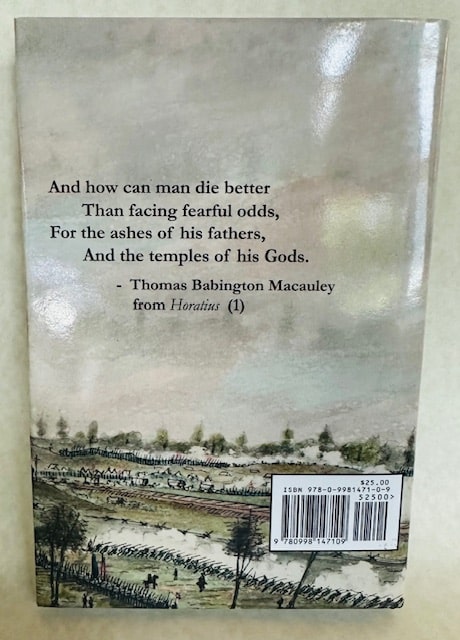
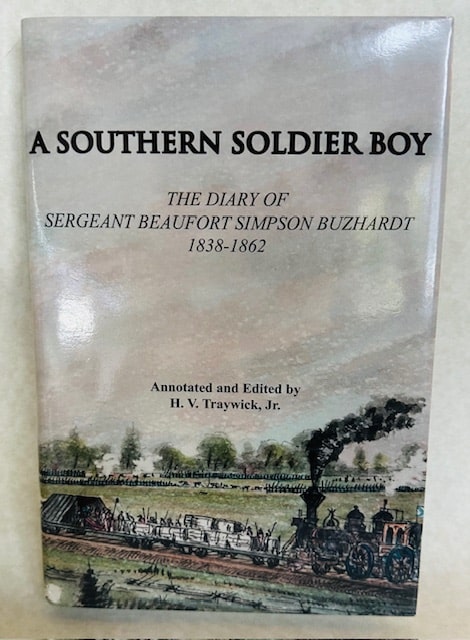 A Southern Soldier Boy (hardback)-The Diary of Sergeant Beaufort Simpson Buzhardt 1838-1862. Annotated and Edited by H.V. Traywick, Jr. The wartime diary of a Confederate infantryman who served from the outbreak of the War Between the States until he was killed in one of the Seven Days' Battles near Richmond in 1862. The diary has been illuminated with pertinent maps and illustrations, and its day-to-day immediacy has been embellished throughout with lively and colorful excerpts from D. Augustus Dickert's "History of Kershaw's Brigade" to put the diary into a broader context. Chapters include South Carolina's secession, the call to arms and the march to Virginia, the first Battle of Manassas, winter quarters in Northern Virginia, the Peninsula Campaign and the Seven Days' Battles around Richmond. This work gives the reader a portrait of Southern hopes in the early days of the War and introduces to the reader the stormy birth of General Lee's legendary Army of Northern Virginia.
A Southern Soldier Boy (hardback)-The Diary of Sergeant Beaufort Simpson Buzhardt 1838-1862. Annotated and Edited by H.V. Traywick, Jr. The wartime diary of a Confederate infantryman who served from the outbreak of the War Between the States until he was killed in one of the Seven Days' Battles near Richmond in 1862. The diary has been illuminated with pertinent maps and illustrations, and its day-to-day immediacy has been embellished throughout with lively and colorful excerpts from D. Augustus Dickert's "History of Kershaw's Brigade" to put the diary into a broader context. Chapters include South Carolina's secession, the call to arms and the march to Virginia, the first Battle of Manassas, winter quarters in Northern Virginia, the Peninsula Campaign and the Seven Days' Battles around Richmond. This work gives the reader a portrait of Southern hopes in the early days of the War and introduces to the reader the stormy birth of General Lee's legendary Army of Northern Virginia. -
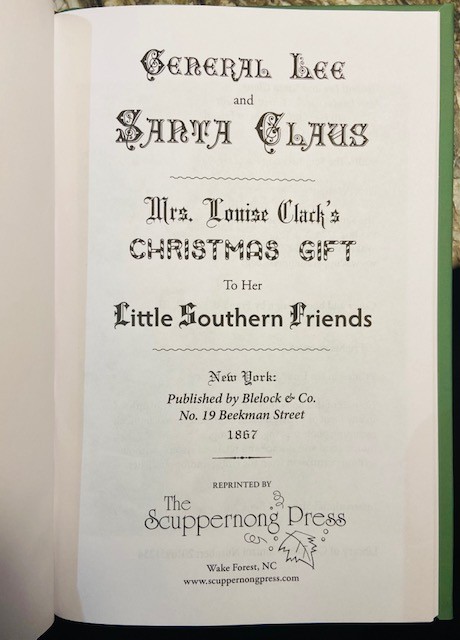
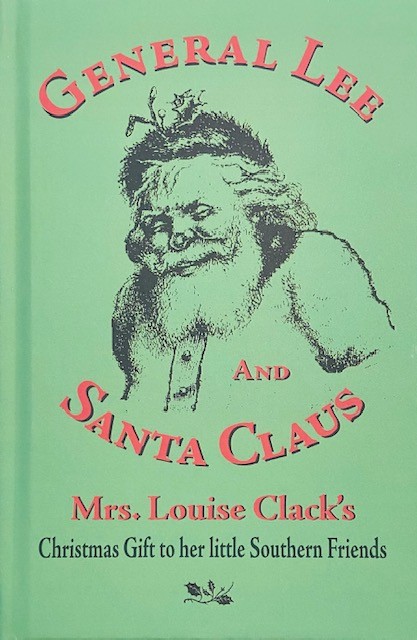 This delightful hardbound children's book was originally published in 1867, a scant two years after the end of the War for Southern Independence. This is the story of three young Southern girls trying to understand why Santa Claus didn't visit the little Southern children during the four Christmases of the War. With the help of their auntie, they ponder this question one afternoon and finally write a letter to General Robert E. Lee, knowing he would be able to answer their question. They decide to put his answer, along with their dreams and other stories, into a book and give it to Santa Claus, so he could sell it for the benefit of the little Confederate children who had lost everything by the War.
This delightful hardbound children's book was originally published in 1867, a scant two years after the end of the War for Southern Independence. This is the story of three young Southern girls trying to understand why Santa Claus didn't visit the little Southern children during the four Christmases of the War. With the help of their auntie, they ponder this question one afternoon and finally write a letter to General Robert E. Lee, knowing he would be able to answer their question. They decide to put his answer, along with their dreams and other stories, into a book and give it to Santa Claus, so he could sell it for the benefit of the little Confederate children who had lost everything by the War. -
 From the authors of THE SOUTH WAS RIGHT! comes a new edition of what one historian calls one of the most important and original histories of the Southern people. PUNISHED WITH POVERTY tells the unvarnished story of the intentional policy of economic devastation and exploitation of the South which has affected all Southerners, both black and white, long after the close of the "Civil War" and "Reconstruction." In fact, the sad legacy of these punitive policies continues to this very day. The over-arching theme of Southern history is not Race, as is conventionally stated, but Poverty - poverty not due to the South's shortcomings but imposed on them by the system under which they live.
From the authors of THE SOUTH WAS RIGHT! comes a new edition of what one historian calls one of the most important and original histories of the Southern people. PUNISHED WITH POVERTY tells the unvarnished story of the intentional policy of economic devastation and exploitation of the South which has affected all Southerners, both black and white, long after the close of the "Civil War" and "Reconstruction." In fact, the sad legacy of these punitive policies continues to this very day. The over-arching theme of Southern history is not Race, as is conventionally stated, but Poverty - poverty not due to the South's shortcomings but imposed on them by the system under which they live. -
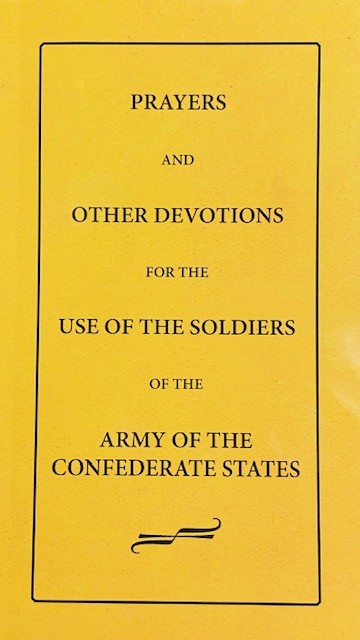 The bedrock of the Southern American culture was that the Bible was indeed the infallible word of the God who created the heavens, the Earth, and all that is therein; and that Jesus Christ is the only means of redemption. Therefore it should not be surprising to anyone that at the beginning of the War of Northern Aggression many of the political, military officers and soldiers were Christians. As a result they knew the great need for those going into battle to possess the Bible, New Testaments, tracts and hymn books, especially for those who were unsaved. It was simply amazing how politicians, army commanders, preachers, churches, chaplains and the people of the Confederacy immediately set into motion whatever was necessary to supply the troops with God's word. --Rev. Dr. Herman White This small prayer book was originally published in Charleston, SC, early in the War to be distributed to Confederate soldiers marching off to war or already in the field. Hopefully this book played a part in bringing comfort to the men in the field as they faced the horrors of war.
The bedrock of the Southern American culture was that the Bible was indeed the infallible word of the God who created the heavens, the Earth, and all that is therein; and that Jesus Christ is the only means of redemption. Therefore it should not be surprising to anyone that at the beginning of the War of Northern Aggression many of the political, military officers and soldiers were Christians. As a result they knew the great need for those going into battle to possess the Bible, New Testaments, tracts and hymn books, especially for those who were unsaved. It was simply amazing how politicians, army commanders, preachers, churches, chaplains and the people of the Confederacy immediately set into motion whatever was necessary to supply the troops with God's word. --Rev. Dr. Herman White This small prayer book was originally published in Charleston, SC, early in the War to be distributed to Confederate soldiers marching off to war or already in the field. Hopefully this book played a part in bringing comfort to the men in the field as they faced the horrors of war. -
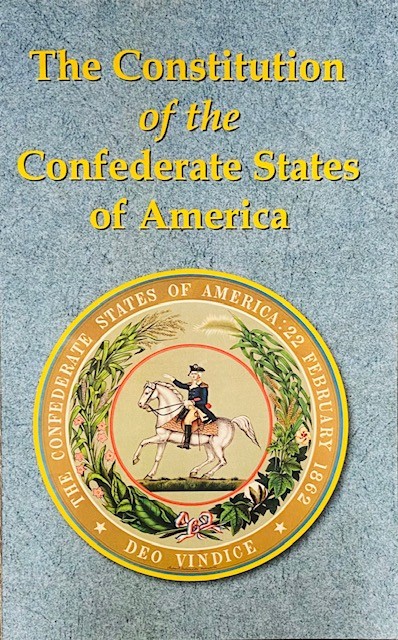 The Constitution of the Confederate States of America was very similar to the United States of America Constitution. And why shouldn't it be? After all, a Southerner, James Madison, was the chief architect of the US Constitution and it was adopted by their forefathers. This was the main reason the states of the South declared their independence and seceded to form their own government. The northern states and the Federal government had strayed from the constitution adopted by their forefathers. Most of the Bill of Rights in the US Constitution was incorporated into the Confederate Constitution. There are other small adjustments and tweaks throughout the document to correct things Southerners felt were in error with the original document and to balance power between the states and the federal government.
The Constitution of the Confederate States of America was very similar to the United States of America Constitution. And why shouldn't it be? After all, a Southerner, James Madison, was the chief architect of the US Constitution and it was adopted by their forefathers. This was the main reason the states of the South declared their independence and seceded to form their own government. The northern states and the Federal government had strayed from the constitution adopted by their forefathers. Most of the Bill of Rights in the US Constitution was incorporated into the Confederate Constitution. There are other small adjustments and tweaks throughout the document to correct things Southerners felt were in error with the original document and to balance power between the states and the federal government. -
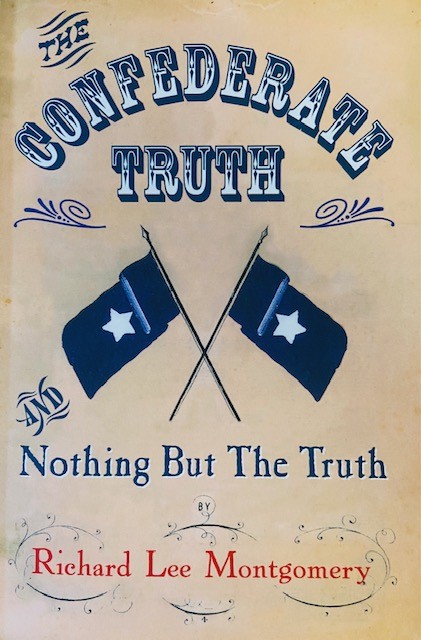 It is true that "history is written by the victors." For more than 150 years the Northern perspective has been the one dominant narrative. The Confederate soldier's good name has been smeared as racist, mocked as buffoons and often erased from the history books as though they never existed at all. This book uses primary sources to teach about what really happened during the "War of Northern Aggression."
It is true that "history is written by the victors." For more than 150 years the Northern perspective has been the one dominant narrative. The Confederate soldier's good name has been smeared as racist, mocked as buffoons and often erased from the history books as though they never existed at all. This book uses primary sources to teach about what really happened during the "War of Northern Aggression." -
 The hope for this book is to show the narrative of the day when the South was invaded by those who desired to inflict their ideals, morals and attitudes, just because "these Southerners" needed to be brought back under the Northerner's way of life, their philosophy of life and their interpretation of the law. But above all, it was because the Northerners way of life was jolted economically when the Southern states seceded from the Union.
The hope for this book is to show the narrative of the day when the South was invaded by those who desired to inflict their ideals, morals and attitudes, just because "these Southerners" needed to be brought back under the Northerner's way of life, their philosophy of life and their interpretation of the law. But above all, it was because the Northerners way of life was jolted economically when the Southern states seceded from the Union. -
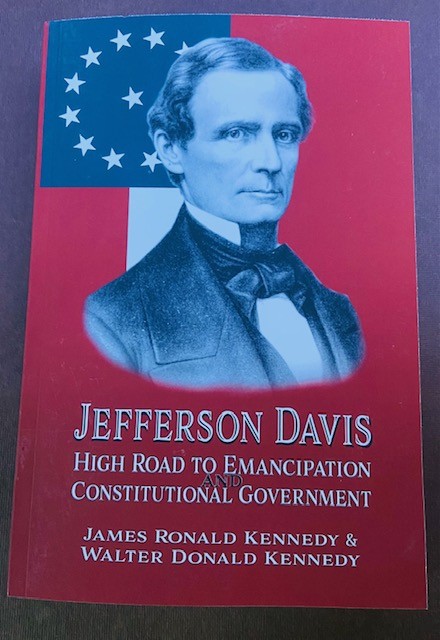 The latest book from the Kennedy brothers. Jefferson Davis was a proponent of the high road to emancipation. He looked to the day in which slaves would be prepared to live within and participate in a democratic society. He did more than advocate for the high road to emancipation - as this book documents, he practiced his belief in the ultimate emancipation of Southern slaves. Many of his former slaves left for posterity their testimony about their former master - a master who prepared them for freedom as self-sustaining members of society. The North's ruling elites justified their invasion, conquest, and occupation of the Confederate States of America by declaring that the South was fighting to preserve slavery and that secession was treason. After the unfortunate end of the War for Southern Independence, the United States arrested Jefferson Davis on charges of treason. Davis demanded a trial, yet the United States never brought Davis to trial - why? Were they afraid they would lose in court? Davis, and through him the South, was unjustly tried in the court of public opinion - a court controlled by the North's ruling elites. This book gives the defense that Davis and the South never had.
The latest book from the Kennedy brothers. Jefferson Davis was a proponent of the high road to emancipation. He looked to the day in which slaves would be prepared to live within and participate in a democratic society. He did more than advocate for the high road to emancipation - as this book documents, he practiced his belief in the ultimate emancipation of Southern slaves. Many of his former slaves left for posterity their testimony about their former master - a master who prepared them for freedom as self-sustaining members of society. The North's ruling elites justified their invasion, conquest, and occupation of the Confederate States of America by declaring that the South was fighting to preserve slavery and that secession was treason. After the unfortunate end of the War for Southern Independence, the United States arrested Jefferson Davis on charges of treason. Davis demanded a trial, yet the United States never brought Davis to trial - why? Were they afraid they would lose in court? Davis, and through him the South, was unjustly tried in the court of public opinion - a court controlled by the North's ruling elites. This book gives the defense that Davis and the South never had. -
 During the Civil War, few men had seen camels on the battlefield. But one Mississippi infantry marched into battle with Old Douglas, who served with the Bloody 43rd and died in the Siege of Vicksburg. The regiment became known as the Camel Regiment, and its soldiers carried memories of Old Douglas through the end of the war and until the end of their own lives. They went on to fight in fourteen battles, including Corinth, Vicksburg, Chickamauga, Atlanta, Franklin, Nashville and Bentonville before they surrendered at war's end. Author W. Scott Bell's fascination with the Camel Regiment began because his great-great-grandfather fought with them.
During the Civil War, few men had seen camels on the battlefield. But one Mississippi infantry marched into battle with Old Douglas, who served with the Bloody 43rd and died in the Siege of Vicksburg. The regiment became known as the Camel Regiment, and its soldiers carried memories of Old Douglas through the end of the war and until the end of their own lives. They went on to fight in fourteen battles, including Corinth, Vicksburg, Chickamauga, Atlanta, Franklin, Nashville and Bentonville before they surrendered at war's end. Author W. Scott Bell's fascination with the Camel Regiment began because his great-great-grandfather fought with them.

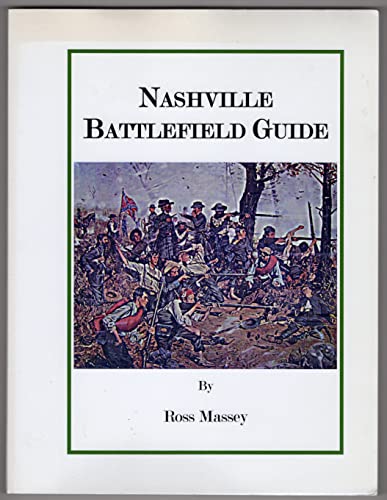
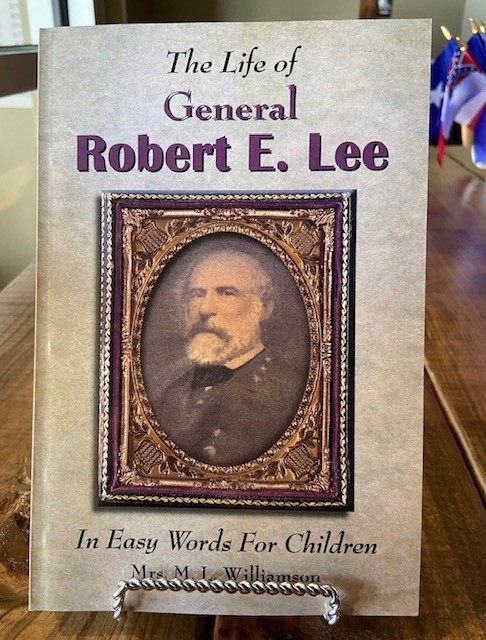
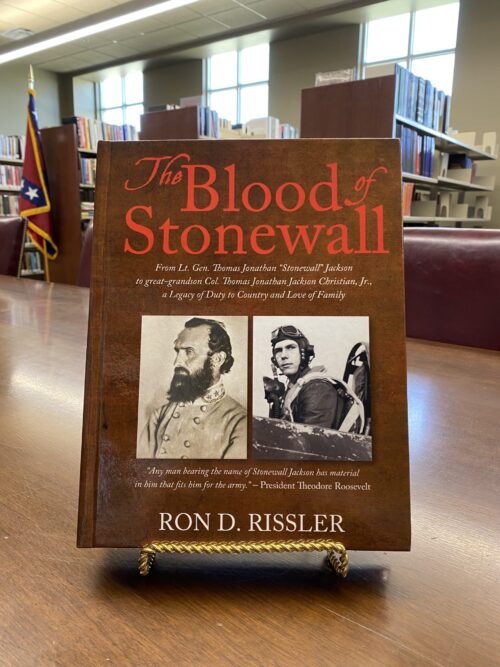
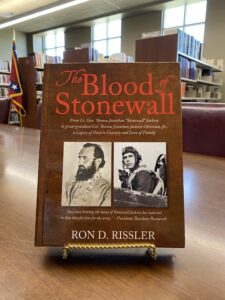 The Blood of Stonewall a book written by Author Ron D. Rissler. We are proud to offer this book in the SCV Store. This is everything you need to know about Thomas Jonathan Jackson, and his descendants.
The Blood of Stonewall a book written by Author Ron D. Rissler. We are proud to offer this book in the SCV Store. This is everything you need to know about Thomas Jonathan Jackson, and his descendants.